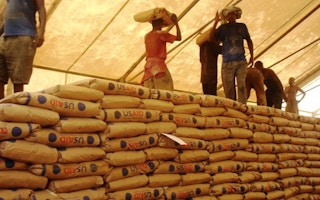U.S. lawmakers launched their latest effort on Wednesday to ease restrictions on international food assistance programs, which they say would free hundreds of millions of dollars a year and get aid to millions more hungry people around the world.
Republicans and Democrats in the Senate and House of Representatives introduced the “Food for Peace Modernization Act of 2018” which they want to include in the 2018 farm bill, a giant piece of legislation governing U.S. agriculture.
Among other things, the bill would end a requirement that 100 percent of food aid commodities be produced in the United States, changing it to 25 per cent.
“
At no extra taxpayer expense, we can put more food into food aid and have it arrive months faster to feed millions of additional starving people without lessening the critical role of American farmers.
Bob Corker, Republican chairman of the senate foreign relations committee, US Senate
This, the sponsors argue, would drastically cut the amount of food aid money spent on overhead costs like shipping.
The measure would also end a requirement to “monetize” food aid, which the bill’s sponsors described as a process in which aid groups must sell U.S. food overseas and use proceeds of those sales to fund development programs.
Lawmakers have been pushing to reform the U.S. overseas food aid system for years.
Supporters have fought successfully to keep the current system in place, arguing that it supports U.S. agriculture and shipping.
Advocates of reform say food aid represents only 0.2 per cent of total U.S. agricultural output, a percentage so small that changing the rules would not have a significant effect on the industry.
“At no extra taxpayer expense, we can put more food into food aid and have it arrive months faster to feed millions of additional starving people without lessening the critical role of American farmers,” Senator Bob Corker, the Republican chairman of the Senate Foreign Relations Committee and a bill sponsor, said in a statement.
The measure is also sponsored in the Senate by Democrat Chris Coons. Similar legislation was introduced in the House on Wednesday by Ed Royce, the Republican chairman of the House Foreign Affairs Committee, and Democratic Representative Earl Blumenauer.
This story was published with permission from Thomson Reuters Foundation, the charitable arm of Thomson Reuters, that covers humanitarian news, women’s rights, trafficking, property rights, climate change and resilience. Visit http://news.trust.org)

















